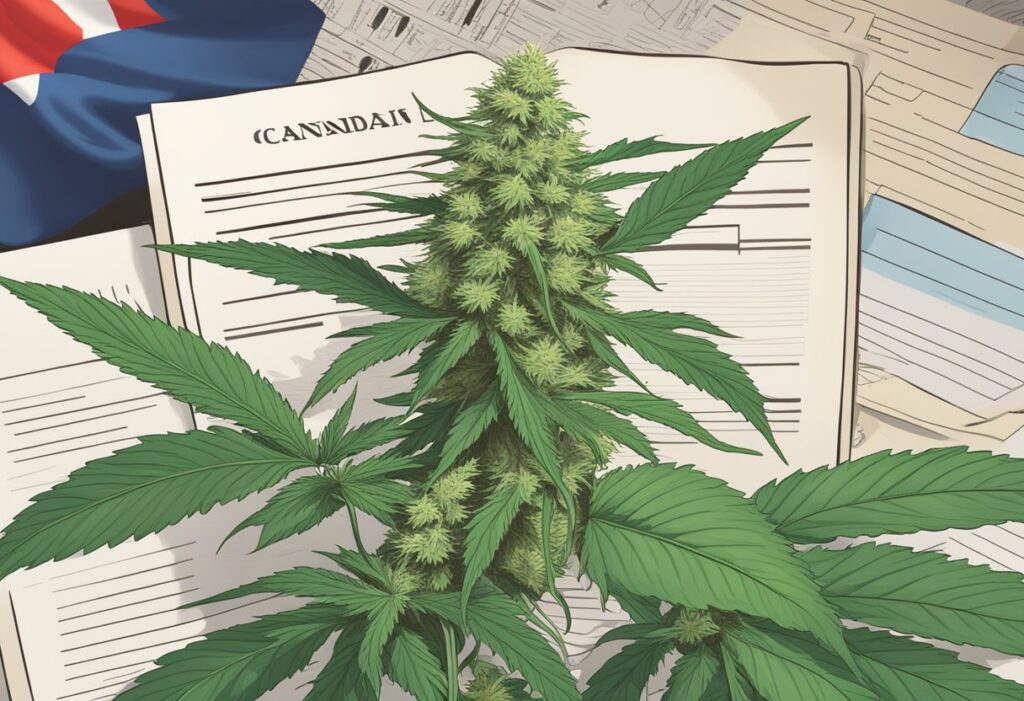
In navigating the legal landscape of medical autoflower usage in Canada, it’s essential to understand the regulatory framework and patient access pathways. Let’s explore the bodies involved, the processes you’ll undergo as a patient, and the interplay between federal and provincial jurisdictions.
Health Canada is the federal department responsible for public health. Under the Cannabis Act and its supporting Access to Cannabis for Medical Purposes Regulations (ACMPR), Health Canada oversees the use and distribution of cannabis for medical purposes. This ensures you, as a patient, have access to cannabis products, including autoflower seeds in Canada, which are valued for their shorter growth cycles and potential medical benefits. Only Licensed Producers (LPs) are authorized by Health Canada to cultivate, process, and sell cannabis, including autoflowers for medical use.
To legally obtain medical cannabis, including autoflower strains, you’ll need:
Upon approval, you’ll receive a Registration Certificate, permitting you to acquire cannabis for medical purposes from a Licensed Producer or to grow a limited amount for personal use. This document streamlines the acquisition process, ensuring that you have legal access to your medication.
While the federal government prescribes the overarching regulations via the Cannabis Act and the ACMPR, provinces like Alberta and Quebec have the autonomy to enforce these regulations while implementing their own rules regarding distribution and access within their jurisdiction. This means the availability and process to access autoflowers for medical use might vary slightly, depending on your province. However, the intention across Canada is uniform: to provide reasonable and safe access to cannabis for patients in need.

In Canada, you can access autoflowering cannabis varieties for medical purposes, which may offer therapeutic benefits for conditions such as chronic pain and anxiety.
Cannabis has been recognized for its potential to alleviate various symptoms. Particularly, autoflowers high in CBD are used for their non-psychotropic properties, potentially providing relief without intense psychoactive effects. Here’s how individuals use cannabis for medical purposes:
When considering cannabis for medical use, you should always consult with a healthcare professional. Here is what you need to know about dosage and administration:
| Form | Typical THC Ratio | Usage |
|---|---|---|
| Cannabis Oil | 0.5-1 mg THC/mL | Sublingual drops, easy to control dose |
| Dried Cannabis | Varies | Inhaled though vaporization |
Start with a low dose and gradually increase it to achieve the desired effect while minimizing side effects such as dizziness or dry mouth.
Your healthcare journey involves various professionals. Physicians and nurse practitioners in Canada can authorize cannabis use for medical purposes. They will assess your condition, potential benefits, and risks associated with cannabis use and guide you in obtaining autoflower seeds in Canada if that’s your preferred method.
Here’s a brief overview of their roles:
To engage in therapy with medical cannabis, including autoflowers, always do so under the guidance of a healthcare professional to ensure safety and efficacy.

Your understanding of the medical uses of autoflowers in Canada is framed by significant advancements in cultivation practices and research. These developments derive from robust production methodologies tailored to autoflowering strains and a collective effort in research that sheds light on the medical potential of cannabis.
The cultivation of autoflower seeds in Canada is optimized to meet the growing demand for medical cannabis. You’ll notice that autoflowers, which transition from vegetative growth to flowering autonomously, are particularly suitable for Canadian growers due to their short life cycle and resilience to varying climates. Aurora Cannabis, one of the prominent producers, has integrated such practices to deliver consistent quality.
When it comes to medical cannabis, research is critical. The Canadian Institutes of Health Research (CIHR) plays a pivotal role in advancing your understanding of cannabis and cannabinoids’ therapeutic effects. Studies focus on:
Through continuous research, you’re gaining insights into optimal dosages, potential therapeutic properties, and the most effective formats for medical cannabis use, whether it be oils or dry. The evolving landscape of cannabis production and research in Canada is supporting your journey toward a clearer understanding of the medical application of autoflowers.
Autoflowering cannabis strains in Canada are subject to the same legal medical applications as other cannabis types. They can be used for conditions approved by Health Canada, such as certain types of pain, chemotherapy-induced nausea, and spasticity due to multiple sclerosis.
The legal status of using autoflowering cannabis plants for medical purposes in Canada has evolved alongside the general cannabis legalization trajectory. With the introduction of the Access to Cannabis for Medical Purposes Regulations (ACMPR), patients have been able to legally access cannabis strains, including autoflowering varieties, under prescription.
Autoflowering cannabis varieties may offer several benefits, including a faster growth cycle and the ability to flower without a change in light schedule. This can be particularly beneficial for patients needing continuous access to medical cannabis.
Health Canada regulates the cultivation of autoflower seeds in Canada, including autoflowering varieties for medical use. Patients must either purchase from licensed producers or register with Health Canada to grow a limited amount for personal medical use.
While autoflowering cannabis strains often have a quicker grow cycle and smaller stature, medically they offer similar therapeutic benefits to traditional strains. The efficacy for individual medical conditions will vary based on the specific cannabinoid profile of the plant.
We ship and deliver world wide via USPS and various couriers.
We offer a wide range of secure and anonymous online payment options.
We care about you, our customer. Please contact us with any questions or concerns.
Find out more about the benefits of being a loyal and regular customer.
WE ARE EVERY GROWERS ONE STOP SHOP TO ACQUIRE PREMIUM CANNABIS SEEDS FOR SALE IN THE USA, CANADA AND AUSTRALIA

Farmers Lab Seeds 2024, | All Right Reserved
Seeds are sold as novelty items, souvenirs, and collectibles. They contain 0% THC. We encourage our customers to check the legislation in their Country, State, Province, and Municipality prior to purchasing items from our store. We do not provide growing information.
All seeds are sold as hemp, and lab tested under 0.3% THC. This product is not for use by or sale to persons under the age of 21. This product should be used only as directed on the label. It should not be used if you are pregnant or nursing. Consult with a physician before use if you have a serious medical condition or use prescription medications. A Doctor’s advice should be sought before using this and any supplemental dietary product. All trademarks and copyrights are property of their respective owners and are not affiliated with nor do they endorse this product.
These statements have not been evaluated by the FDA. This product is not intended to diagnose, treat, cure or prevent any disease. Individual weight loss results will vary. By using this site, you agree to follow the Privacy Policy and all Terms & Conditions printed on this site. Void Where Prohibited by Law.